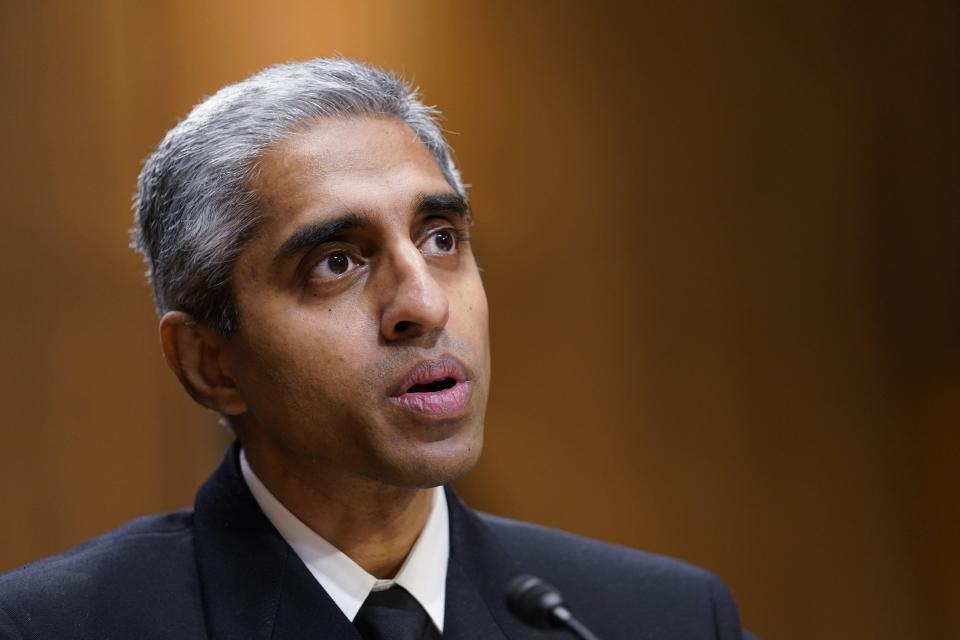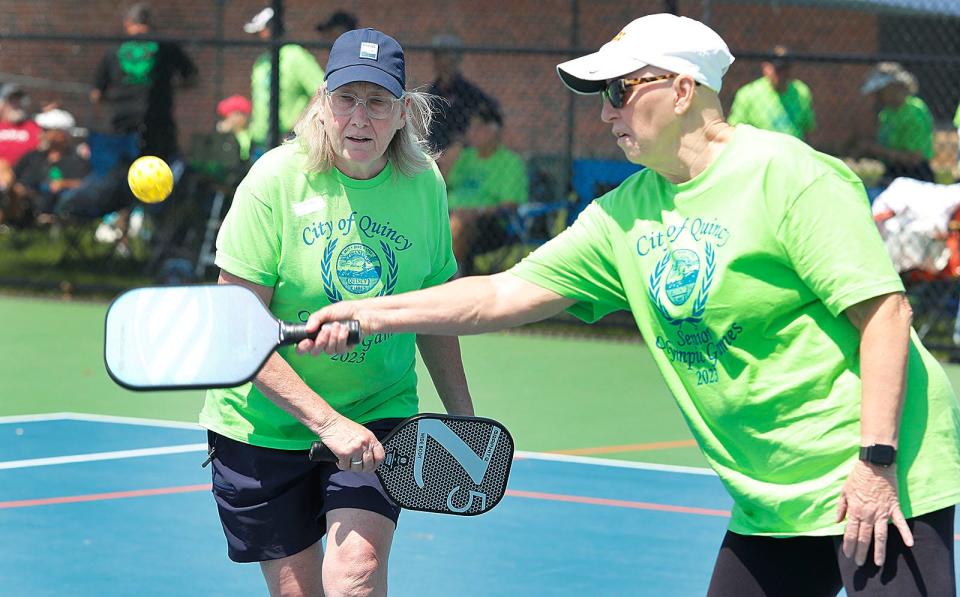We're in this together: Fighting the loneliness epidemic
At the outset of May’s national Mental Health Awareness Month, U.S. Surgeon General Dr. Vivek Murthy sounded the alarm about a health crisis enveloping the nation: the epidemic of loneliness and isolation.
It’s a situation that’s been ongoing for several years — and was exacerbated by the pandemic.
“Our epidemic of loneliness and isolation has been an underappreciated public health crisis that has harmed individual and societal health,” he said in an advisory. “Our relationships are a source of healing and wellbeing hiding in plain sight — one that can help us live healthier, more fulfilled, and more productive lives. Given the significant health consequences of loneliness and isolation, we must prioritize building social connection the same way we have prioritized other critical public health issues such as tobacco, obesity, and substance use disorders. Together, we can build a country that’s healthier, more resilient, less lonely, and more connected.”
More national health challenges: What went wrong in the COVID war? Book from 9/11 commission-style group rates US response
More: The McDonald's diet? How one man has lost 40-plus pounds eating only fast food
Celebrity health: 'Eye' can't believe it: How celeb's self-inflicted infection a reminder about vision health

As he detailed, the physical health consequences of poor or insufficient connection include a 29% increased risk of heart disease, a 32% increased risk of stroke, and a 50% increased risk of developing dementia for older adults. Additionally, lacking social connection increases risk of premature death by more than 60%.
Isolation’s effect on mental health
In addition to our physical health, loneliness and isolation contribute substantially to mental health challenges. In adults, the risk of developing depression among people who report feeling lonely often is more than double that of people who rarely or never feel lonely. Vivek says “loneliness and social isolation in childhood increase the risk of depression and anxiety both immediately and well into the future. And with more than 1 in 5 adults and more than one in three young adults living with a mental illness in the U.S., addressing loneliness and isolation is critical in order to fully address the mental health crisis in America.”
To combat the problem, he laid out a framework for the country to establish a national strategy to increase social connectedness.

The strategy is based on the following six foundational pillars:
Strengthen social infrastructure: Connections are not just influenced by individual interactions, but by the physical elements of a community (parks, libraries, playgrounds) and the programs and policies in place. To strengthen social infrastructure, communities must design environments that promote connection, establish and scale community connection programs, and invest in institutions that bring people together.
Enact pro-connection public policies: National, state, local, and tribal governments play a role in establishing policies like accessible public transportation or paid family leave that can support and enable more connection among a community or a family.
Mobilize the health sector: Because loneliness and isolation are risk factors for several major health conditions (including heart disease, dementia, depression) as well as for premature death, health care providers are well-positioned to assess patients for risk of loneliness and intervene.
Reform digital environments: It’s vital for all people to critically evaluate our relationship with technology and ensure that how we interact digitally does not detract from meaningful and healing connection with others.
Deepen our knowledge: A more robust research agenda, beyond the evidence outlined in the advisory, must be established to further our understanding of the causes and consequences of social disconnection, populations at risk, and the effectiveness of efforts to boost connection.
Cultivate a culture of connection: The informal practices of everyday life (the norms and culture of how we engage one another) significantly influence the relationships we have in our lives. We cannot be successful in the other pillars without a culture of connection.
How to help seniors cope with loneliness
Rachel Blumberg, currently CEO and president of Sinai Residences in Boca Raton, has been working in the senior-living-facility industry for nearly 25 years — and has long prioritized the need for her clients to feel socially, emotionally and physically connected with others.

“We naturally seek the companionship of others as part of our wellbeing,” she explains. “Often for seniors, loneliness can be attributed to feeling a lack of purpose. For many, career, children and community comprised the first chapters of their lives, offering a sense of purpose. Unfortunately, after retirement, daily life changes, and without drive and ambition, life can often feel meaningless.”
For those who are feeling lonely and/or disconnected she cites local free charities and organizations (such as Jewish Family Services) that offer buddy volunteer services, companion services and more — regardless of religion or background.
She also recommends “seeking out local senior centers, joining a gym, volunteering, and/or joining a book club. The great thing about South Florida is that because we have such a large population of seniors there are numerous opportunities and resources available.”
The most important thing she says, though, is “to get out of the house. The pandemic forced unhealthy behaviors on all of us — regardless of age — but it really took its toll on the senior population. The isolation of the pandemic created a sedentary lifestyle that isn’t necessarily healthy or good for overall mental wellness. Lack of movement can lead to depression, which means seniors can struggle with their mental health even if their home is filled with loved ones.”

If you're concerned a senior loved one in your life may be struggling with their mental health, she has the following recommendations:
If you are an adult child and you pay the bills, look for a decrease in spending on food expenses or routine activities.
Be direct and ask your loved one if they are feeling lonely. They might surprise you with an honest answer and you can take it from there. Many people want to talk about their loneliness, but they don’t know how to initiate it or start the conversation.
If you do not live with your loved one and/or live out of state, find someone local who can visit with your loved one regularly.
“As Aristotle said long ago, ‘Man is by nature a social animal,’” says Blumberg. “So that means we all need to prioritize being socially and emotionally connected to one another.”
This article originally appeared on Palm Beach Post: Six pillars of battling nation's loneliness, isolation epidemic

